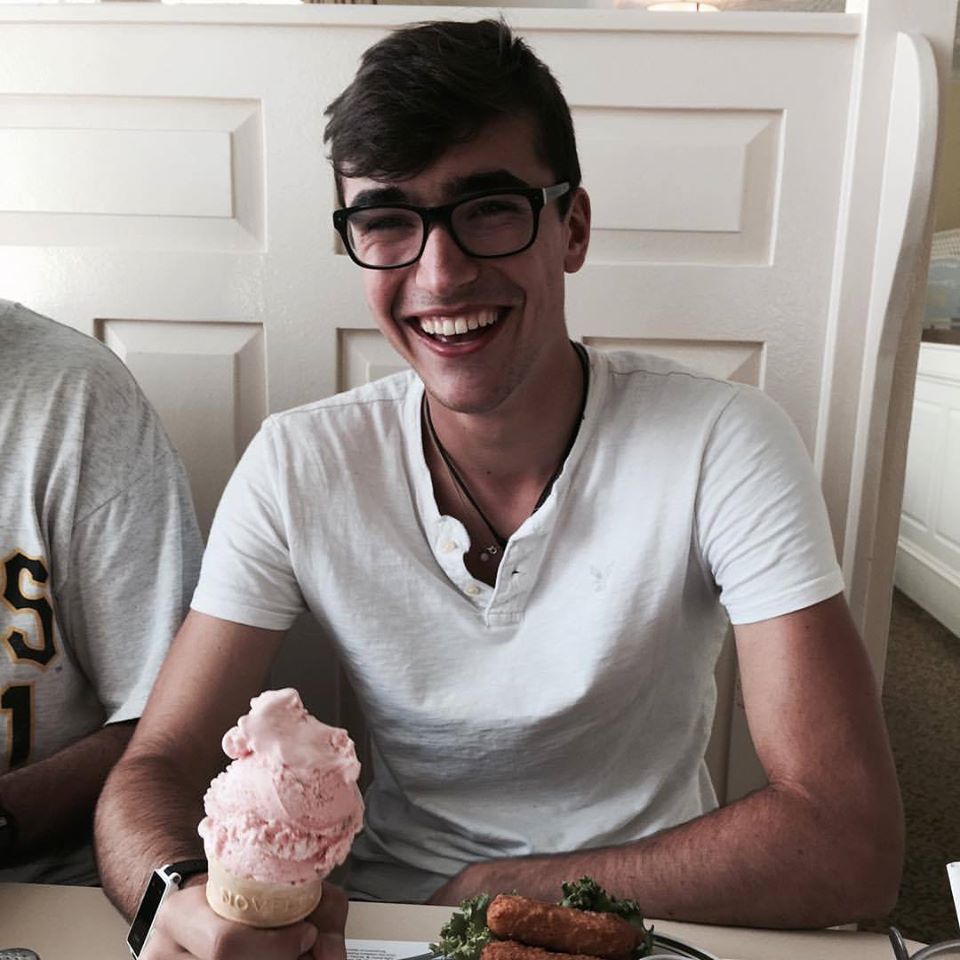David King’s fascination with Christian theology began when he was 14
By Molly Hawkins
While most kids his age were playing outside, going to the movies, or playing video games, you could find 14-year-old David King reading theology.
Not that King didn’t engage in typical kid activities, as well. But when his pastor gifted him two books on theology when he was in the ninth grade, he found himself absorbed in a new world that felt somehow familiar to him.
“It was like finding a language that was familiar, something that made sense and excited me,” King said.
Eight years later, 22 years old and a senior double major in Religion and Philosophy at Haverford, King is looking ahead to attending Divinity School after graduation, and is considering possible careers in the ministry and academia.
King was born in Washington D.C., but grew up in Alexandria in northern Virginia. He returned to D.C. to attend Georgetown Day School for high school. He was raised in the Methodist Church, and attended services on Sundays with his family. King considers his early and consistent presence in church as a key factor in shaping his Christianity, in a way that was very authentic.
way that was very authentic.
“…It’s not just something you do because that’s what you do on Sundays,” King said, his hands moving emphatically before him as he spoke, his dark hair swept over his forehead, his eyes bright and kind. “In the same way that going to church and worshiping should change who adults are, it does the same thing for children. When you go to church and you worship and you take the sacraments, those are things Christians believe actually affects a change on people. I came to understand who I was through the things that I was doing in church.”
In this way, King had no one moment of realization of his faith. Although he wants to pay moments of conversion their proper respect, and recognizes that many people have had truly authentic experiences of coming into faith within a moment that is simply not his story. Rather, his faith community was given to him at birth due to his family’s background. His faith is something he was able to grow into and come to understand more clearly as he continued to go to church and engage with Christian practices and worship throughout his childhood and into his adolescence.
“I wouldn’t be a Christian if I hadn’t been baptized as a child. There’s a really distinct sense in which, I’m a Christian because at least in part, my family raised me to be one,” King said.
But it was the two books on theology that he got when he was 14 hat allowed King to realize a possible future career working with theology, either in churches, classrooms, or both.
One of the books, The Doors of the Sea, focuses on the problem of evil in regards to the aftermath of the devastating tsunami in southern Asia in December 2004. Reading it allowed King to start thinking about the relationship between the concept of a loving God and the concept of evil.
The second book, The Beauty of the Infinite: the Aesthetics of Christian Truth, was a much denser read that he spent about a year on, reading and processing just pages at a time. His experience with both books affirmed his interest in and passion for the theological, a passion that has only increased over time.
“Reading theology has persistently brought me back to thinking, ‘Wow, there is really a world here that is worth exploring,’” King said.
If there comes a day when he has his own congregation, which is not unlikely, King said he would strive to have a relationship with his congregants that is sacramental in nature, centering around the giving and receiving of the sacraments, particularly Baptism and Communion. He would also encourage his congregants not to be afraid to live out the truth that their faith calls them to, even if this results in living very unique or strange lives.
“We have to recognize that the truth that we are conscripted into living is one that is going to make us a very odd bunch of people,” King said.
For him, this truth centers around the grace of God through the incarnation of Christ, a truth that becomes clear through worship. Yet, despite his passionate beliefs, King has no major desire to reach non-Christians and pull them into the faith. Rather, he would see his responsibility being to his own particular community of faith.
“The first thing is we need to do is make sure that Christians know how to be Christians. We need to get people to understand their own faith first,” King said, laughing. “The lives we lead will invite questions from those outside the faith, but converting people is not our task.”
Molly Hawkins covers religions and religious issues.
